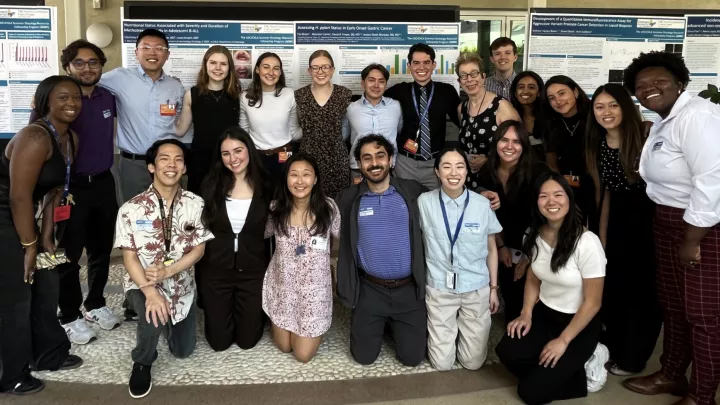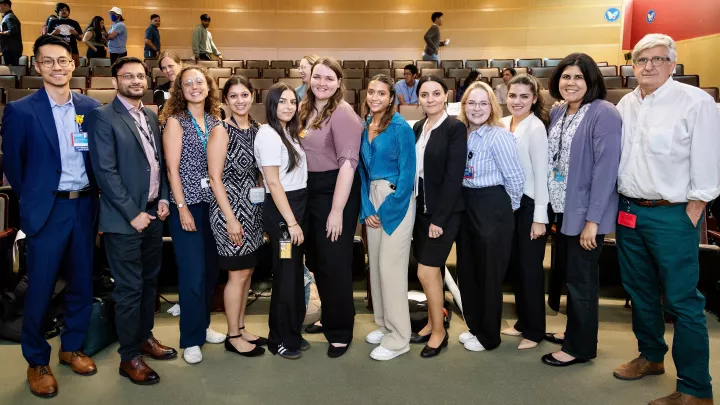Donnell Society Steering Committee

Sonia Michail, MD, FAAP, CPE, AGAF
Sonia Michail, MD, FAAP, CPE, AGAF is the Director of the George Donnell Society for Pediatric Scientists at CHLA.
Dr. Sonia Michail is a Professor of Clinical Pediatrics at Keck School of Medicine and director of Inflammatory Bowel Disease research at Children’s Hospital of Los Angeles. She has been studying the gut microbiome and how to modify it to benefit children with gastrointestinal disorders especially Hispanic children with Inflammatory Bowel Disease. She has also developed a Fecal Microbial Transplant Program at the Children’s Hospital of Los Angeles. She has been externally funded for many years by several agencies including the National Institute of Health, the Crohn’s and Colitis foundation, the American Gastroenterological Association, the Higgins Family Foundation, etc. She has been a fellow of the Gastroenterological Association and has been induced as a member of the Society of Pediatric Research and the Pediatric Academic Society. She has served as a research reviewer and chair for the National Institute of Health, Canadian Institute of Health Research, Crohn’s and Colitis Foundation, North American Society of Pediatric Gastroenterology, etc. Dr. Michail is passionate about mentoring trainees of all stages and mentoring young faculty. She has over seventy publications, most of which have been co-authored by trainees. Some of her trainees have become leaders in the field.
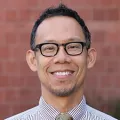
Clement Cheung, MD, PhD
Clement Cheung, MD, PhD, is a Clinical Associate Professor in Pediatrics at the Keck School of Medicine of the University of Southern California. He is the Director of Combined Neuroendocrinology/Neurooncology clinic, Director of Medical Education in Endocrinology for Residents and Medical Students, and Associate Director of Fellowship Program. He received his MD and PhD from the University of Washington Medical Scientist Training Program and studied Leptin as a nutritional signal to the onset of puberty. He was the recipient of the inaugural Dr. Kathy-Kanes-Naef Memorial Award for Excellent in Teaching. He did his pediatric residency and endocrinology fellowship at the University of California, San Francisco, where he performed his NIH-funded K08 research in the hypothalamic control of energy homeostasis. He received the Lawson Wilkins Pediatric Endocrine Society Research Fellowship Award, the UCSF Melvin Grumbach Award for Excellence in Pediatric Research, the Lawson Wilkins Pediatric Endocrine Society Clinical Scholar Award, and the 12th Annual Hong Kong Diabetes and Cardiovascular Risk Factor Symposium Young Investigator Award.
He is an Attending Physician at the Children’s Hospital of Los Angeles and specializes in the care for children with brain tumors who are at risk for endocrine late effects. He is passionate about medical education and is the recipient of the CHLA Pediatric Residency Program Monthly Faculty Teaching Award in 2016, 2020, and 2021. He received the Annual Philip E. Rothman Memorial Award for Excellence in Pediatric Resident Education in 2020. Dr. Cheung empowers trainees to apply endocrinology in general pediatrics practice, and facilitates the care of diabetes insipidus and of endocrine late effects in childhood brain cancer survivors.
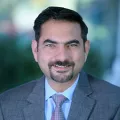
Rohit Kohli, MBBS, MS
Dr. Kohli received his medical degree from the Armed Forces Medical College, India in 1999 and his MS in clinical investigation from Northwestern University in 2006. While at Northwestern he first spent three years as a pediatric gastroenterology and hepatology fellow and then subsequently as a transplant hepatology trainee before relocating to the University of Cincinnati in 2007.
His research work has focused on the pathogenesis of obesity related fatty liver disease (NAFLD). In particular, he has focused upon the role of bile acid signaling as a mechanism for NAFLD resolution after weight loss surgery. His work has also shed light on reactive oxygen stress in the generation and regulation of the extreme stage of this disease; nonalcoholic steatohepatitis (NASH). He has published many peer-reviewed articles including articles in Nature, Nature Reviews, The Journal of Biological Chemistry, Hepatology, Journal of Pediatrics, and The American Journal of Physiology. He is the author of many book chapters and review articles. He also is the recipient of the 2007 George Ferry Young Investigator Award from the Children's Digestive Health and Nutrition Foundation, a Fellowship award from the American Association for the Study of Liver Diseases, Takeda Research Innovation Award from the North American Society for Pediatric Gastroenterology, Hepatology and Nutrition Foundation.

Yves DeClerck, MD
Yves DeClerck, MD, is a Professor of Pediatrics and Biochemistry and Molecular Medicine at the Keck School of Medicine of USC, and a pediatric hematologist-oncologist at the Cancer and Blood Institute at Children’s Hospital Los Angeles and Associate Director at the USC Norris Comprehensive Cancer Center.
Dr. DeClerck is a physician-scientist leading a research program focused on the tumor microenvironment in cancer progression with a focus on neuroblastoma, the second most common solid tumor in children. He collaborates with colleagues at CHLA, USC, City of Hope, and Weill Cornell. His laboratory has been funded without interruption by the National Institutes of Health (NIH) since 1986. He has published more than 145 papers and review articles and is nationally and internationally recognized as a leader in the field of the tumor microenvironment. He frequently lectures in the U.S. and abroad, and he is an active member of the American Association for Cancer Research, having served on its Conference and Publication Committees, contributing to its Cancer Survivor Outreach Program and organizing several conferences sponsored by the Association. He was a Senior Editor for Cancer Research and is currently Senior Editor for Molecular Cancer Research. Dr. DeClerck has served and continues to serve on multiple NIH review groups, the European Research Council, and the Cancer Research and Prevention Institute of Texas. He was the co-Chair of the National Cancer Institute Tumor Microenvironment Network, a group of 11 leading academic institutions focusing on the tumor microenvironment. At USC-Norris, he co-led the Tumor Microenvironment Program for 24 years and is now the Associate Director for Cancer Research Training and Education.
Dr. DeClerck has mentored multiple postdoctoral fellows and graduate students in his own laboratory as well as junior faculty members. Since 1991, he has been the Principal Investigator of a National Cancer Institute-funded postdoctoral training grant. He is the Research Director for the fellows at the Cancer and Blood Institute at CHLA and the Program Director of the Pediatric Scientist Program of the Department of Pediatrics.
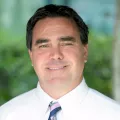
Jon Detterich, MD
Dr. Jon A. Detterich is an Associate Professor of Clinical Pediatrics at Keck School of Medicine, an advanced imaging specialist in the Division of Cardiology at Children’s Hospital of Los Angeles and the head of the Biorheology Laboratory at Children’s Hospital of Los Angeles. Dr. Detterich’s research focus has been on the interaction between hemorheology, the mechanics of blood flow, and endothelial/microcirculatory function in children, adolescents, and adults with sickle cell anemia. He has found that the mechanics of non-deformable red blood cells in flowing blood interact with the endothelium mechanically as well as biochemically resulting in a diffuse endotheliopathy. Chronic hemolysis contributes significantly to the diffuse vascular disease through transfer or scavenging of nitric oxide equivalents, alterations that depend on hemolytic burden stemming from varying levels of free hemoglobin in the plasma. He is now applying his findings in sickle cell blood and vascular disease to children with univentricular physiology and the unique Fontan circulation at the Children’s Hospital of Los Angeles. He has been externally funded for many years by several agencies including the National Institute of Health and Additional Ventures Single Ventricle Research Fund. He is a member of the Society of Pediatric Research and the Pediatric Academic Society. He has served as a research reviewer for multiple cardiology and hematology focused journals as well as general health related scientific journals. Dr. Detterich has mentored trainees at all levels from high school students through subspecialty fellows and junior faculty. He is most passionate about mentoring trainees from underserved and underrepresented areas of Los Angeles.

Jennifer Dien Bard, PhD, D(ABMM), FIDSA
Jennifer Dien Bard, PhD, D(ABMM), FIDSA, is a Professor of Pathology with Clinical Scholar designation in the Department of Pathology, Keck School of Medicine, University of Southern California. She is the Director of the Clinical Microbiology and Virology Laboratories and the Chief of Academic and Research Development in the Department of Pathology and Laboratory Medicine at Children’s Hospital Los Angeles. Dr. Dien Bard serves on several committees and working groups for organizations including the National Academy of Science (NAS), the Infectious Diseases Society of America (IDSA), the Association for Molecular Pathology (AMP), the American Society for Microbiology (ASM), the Clinical and Laboratory Standards Institute (CLSI) and the Antimicrobial Resistance Leadership Group (ARLG). Dr. Dien Bard is an Editor of Clinical Microbiology Reviews journal, an Associate Editor for the Journal of Clinical Virology and serves on the Editorial board of the Journal of Clinical Microbiology. Dr. Dien Bard has published over 100 scientific papers and is a frequent speaker in the areas of rapid molecular diagnostics for the identification of infectious diseases pathogens. Her clinical research studies explore the application and effects of laboratory diagnostic, particularly molecular diagnostics on patient diagnosis, antimicrobial utilization and overall clinical outcome.
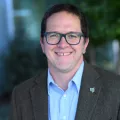
Mark Frey, PhD
Mark Frey is the Director of the Developmental Biology and Regenerative Medicine (DBRM) Research Program. Dr. Frey joined CHLA’s Division of Pediatric Gastroenterology, Hepatology and Nutrition in 2010. He is an Associate Professor of Pediatrics at the Keck School of Medicine of USC. He is an internationally recognized expert in the cell-cell signaling mechanisms that control regeneration in the intestine after injury. His primary research focus is on how growth factor-initiated signals dynamically regulate the balance of stem and differentiated cells in the lining of the gut, and how this balance is disturbed in inflammatory bowel disease. Dr. Frey will continue to serve in his other leadership positions as Director of the CHLA Samuels Family LA-HIP Program and Director of the USC PIBBS interdisciplinary PhD program.
Dr. Frey works with multidisciplinary DBRM faculty to facilitate leading-edge research into the developmental origins of childhood disease, advance the potential of stem cell-based therapeutic approaches and provide an outstanding environment for training students and fellows. This also includes bringing the bench to the bedside through collaboration with patients, families and clinicians with healthcare journeys that include the diagnoses that the team studies.

Senta Georgia, PhD
Senta Georgia, PhD is a Principal Invesitagor of the Center for Endocrinology, Diabetes and Metabolism and member of the Division of Endocrinology at CHLA. Dr. Georgia is also an Assistant Professor of Pediatrics at the Keck School of Medicine of USC. Dr. Georgia attended Stanford University, earning her BS in Biological Sciences, and dual departmental honors in Biological Sciences and Ethics in Society. She earned her PhD at UCLA in Molecular Biology. Her dissertation focused on the role of cell cycle molecules in the establishment, expansion, and maintenance of beta cell mass. She was a postdoctoral fellow and assistant adjunct professor at the Hillblom Islet Research Center at UCLA. Her research involves the regeneration of insulin-producing, pancreatic beta cells as a potential therapeutic for patients with type 1 diabetes. Her research on how the enzyme, DNMT1, is critical to stem cells differentiating into pancreatic beta cells was featured on the cover of the journal Genes & Development.

Lorraine Kelley-Quon, MD, MSHS, FAAP
Dr. Lorraine Kelley-Quon, MD, MSHS, FAAP, is a practicing general surgeon at Children’s Hospital Los Angeles and Assistant Professor of Surgery and Preventive Medicine at USC. She obtained her bachelor’s degree in biochemistry and cell biology at the University of California, San Diego, and completed her medical degree and general surgery training at the University of California, Los Angeles, followed by a fellowship in pediatric surgery at Nationwide Children’s Hospital at The Ohio State University in Columbus, Ohio. During residency, she completed the Robert Wood Johnson Clinical Scholars Program and obtained a master’s in Health Services Research from the UCLA Fielding School of Public Health. Kelley-Quon’s research interests include optimizing opioid prescribing for children undergoing surgery, identifying and eliminating health care disparities for children, and translating health services research into health policy.

Christopher Kuo, MD
Dr. Christopher Kuo is a Clinical Instructor of Pediatrics at the Keck School of Medicine and is a pediatric hematologist-oncologist at the Cancer and Blood Disease Institute at Children’s Hospital Los Angeles. He earned his Medical Degree from Rush University and completed both his Pediatric Residency and Pediatric Hematology/Oncology Fellowship at Children’s Hospital Los Angeles. Dr. Kuo is a physician-scientist, currently doing his post-doctoral research at Dr. James F. Amatruda’s lab. He is investigating the tumor microenvironment of Ewing sarcoma utilizing a novel genetic zebrafish model, along with spatial proteogenomic technologies. Dr. Kuo is supported by the George Donnell Society, St. Baldrick’s Foundation, A.P. Giannini Foundation, and the Coco Johnson Pediatric Sarcoma Fund.

Michael Neely, MD, MSc, FCP
Dr. Neely is a Professor of Pediatrics (Clinical Scholar) at the Keck School of Medicine of USC. He is a Board-certified pediatric infectious disease specialist physician with more than 20 years of experience in patient care, research, and mentoring of more than 40 visiting scholars, fellows and post-docs in clinical pharmacology and pharmacometrics. He serves as the Chief of Infectious Diseases at Children’s Hospital of Los Angeles and the Director of the CHLA Laboratory of Applied Pharmacokinetics and Bioinformatics. Dr. Neely’s lab created and maintains the Pmetrics population modeling and simulation package for R and the BestDose software to optimize individual patient dosing through applied pharmacometric techniques. He has recently expanded his lab to include hollow fiber capabilities, focusing on optimizing treatment of serious infections in pediatric patients such as Mycobacterium abscessus, Staphylococcus aureus, and resistant Gram-Negative bacteria. He is a National Institutes of Health-funded researcher, lectures and conducts pharmacometric workshops internationally, and has published over 100 peer-reviewed publications and nine book chapters.

Jonathan Santoro, MD
Jonathan D. Santoro MD is an Assistant Professor of Pediatrics and Neurology at the Keck School of Medicine of USC and serves as the Director of Neuroimmunology and the Director of Research at the Neurologic Institute at Children’s Hospital Los Angeles. Dr. Santoro obtained his bachelors, masters, and medical degrees from Tulane University prior to completing his residency in pediatric neurology at Stanford University and neuroimmunology fellowship at Harvard Medical School. Dr. Santoro is a physician-scientist who’s research focuses on the neurogenetics of neuroinflammatory disease in children. His NIH-funded research program focuses on autoimmune and inflammatory etiologies of neurologic disease in persons with Down syndrome. Dr. Santoro’s clinical and translational research has led to novel therapeutic interventions of individuals with Down syndrome and neurologic disease, most notably moyamoya syndrome and Down Syndrome Regression Disorder (DSRD). In addition, Dr. Santoro leads research investigations in pediatric multiple sclerosis, autoimmune encephalitis, myelin oligodendrocyte glycoprotein related disorders and Aicardi Goutières’s syndrome. In addition to his research, Dr. Santoro is a passionate mentor for students and trainees and directs the scholarly concentration efforts in the Division of Neurology at Children’s Hospital Los Angeles.
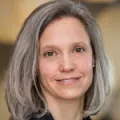
Tamara D. Simon, MD, MSPH
Tamara D. Simon, MD, MSPH, is a practicing pediatric hospitalist at Children’s Hospital Los Angeles with an interest in improving the quality of evidence in the inpatient health care provided to children with medical complexity. She is a Professor of Pediatrics (Clinical Scholar) in the Division of Hospital Medicine and Department of Pediatrics at USC as well as Principal Investigator at The Saban Research Institute at CHLA. As Faculty Director for Training, Education, Career Planning and Development (TECPAD) and Associate Director for Training and Education at The Saban Research Institute, Dr. Simon assists the TECPAD team in the design and implementation of programs to promote research at Children’s Hospital Los Angeles and The Saban Research Institute.

Amy E. West, PhD
Dr. Amy E West is a Professor of Clinical Pediatrics, Psychology, and Psychiatry & the Behavioral Sciences; Director of the CHLA Child Clinical and Pediatric Psychology Internship; and Associate Training Director for Psychology in the Department of Pediatrics and Children’s Hospital Los Angeles and USC Keck School of Medicine. In addition, Dr. West holds a secondary appointment as a Professor in the Department of Psychology at USC Dornsife College of Letters, Arts, and Sciences and is a faculty member of the USC interdisciplinary Center for the Changing Family. Dr. West is a Board-Certified Clinical Child and Adolescent Psychologist and an intervention scientist with clinical and research interests in psychosocial interventions for the treatment of pediatric mood and anxiety disorders, including studying predictors and mechanisms of treatment response, and the application of psychosocial interventions to underserved, ethnic minority populations. She is the developer of child- and family-focused cognitive-behavioral therapy (CFF-CBT), or RAINBOW therapy, which is one of only a few evidence-based psychosocial interventions for youth with pediatric mood disorders. This treatment model was rigorously studied through a NIMH-funded randomized trial (PI: West) and published by Oxford University Press, in their prestigious “Treatments That Work” series. Currently, Dr. West is a co-investigator and the director of CBT implementation for a large PCORI-funded clinical effectiveness trial for pediatric anxiety treatment in urban, underserved, predominantly Latinx youth and families. She is also a co-investigator for the CHLA site of the Adolescent Brain Development (ABCD) Study, a 21-site clinical research study funded by NIH that represents the largest long-term study of brain development and child health in the United States. Finally, she is a co-investigator on several studies funded by DHHS/SAMHSA and focused on intervention development, cultural tailoring, and implementation of substance use prevention and treatment interventions for American Indian/Alaska Native youth and families in partnership with colleagues in the Department of Population and Health Sciences at USC. Dr. West has been funded by NIMH, PCORI, SAMHSA, CA DHHS, and multiple private foundations for her clinical trial, effectiveness, and community-based participatory intervention research. She has mentored over 150 doctoral trainees, and over 60 as a primary research mentor, including as a sponsor on NIH-funded training grants, such as K-awards, T32s, and F31s. Dr. West received a B.A. in Psychology from Stanford University, her Ph.D. in Clinical Psychology from the University of Virginia, and completed her pre-doctoral internship and post-doctoral fellowship at Harvard Medical School/Children's Hospital Boston.
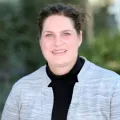
Jessica L. Wisnowski, PhD
Dr. Jessica Lee Wisnowski is an Assistant Professor of Research with expertise in perinatal brain injury. She obtained a PhD in Clinical Psychology from the University of Iowa and completed a residency in Neuropsychology/Rehabilitation at Rancho Los Amigos National Rehabilitation Center. She completed post-graduate training in Neuroscience and Neuroimaging at the University of Southern California/Children’s Hospital Los Angeles. She is a member of the Society for Pediatric Research, the International Society of Magnetic Resonance in Medicine and the Society for Pediatric Radiology.
Dr. Wisnowski’s research focuses on the development and application of novel neuroimaging biomarkers to aid in the diagnosis of perinatal brain injury and the management of neuroprotective therapies. She has numerous peer-reviewed publications in the fields of Hypoxic-Ischemic Encephalopathy (HIE), Bilirubin Encephalopathy, Kernicterus, Prematurity, and normal brain development. She is also the author of several book chapters describing the methods and application of neuroimaging techniques, including Diffusion Tensor Imaging and MR Spectroscopy of the neonatal brain. She is currently Chairwoman of the Neuroimaging Core for a NIH-funded, multi-center trial for erythropoietin neuroprotection in neonates with HIE.
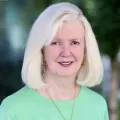
Roberta Williams, MD
Dr. Williams developed an early interest in congenital heart disease and elected Medicine-Pediatrics primary training, followed by a combined pediatric and adult cardiology fellowship at Boston Children’s Hospital and Massachusetts General Hospital. Her interests and expertise would span the lifecycle of patients with congenital heart disease. She was a pioneer in the field of echocardiography, beginning in 1973, developing the initial clinical correlations with echo findings that formed the bases of definitive non-invasive diagnosis of a wide variety of cardiac anomalies, supplanting cardiac catheterization for purely diagnostic purposes. While on the faculty at Children’s Hospital, she also served as the founding medical director of the cardiac surgical intensive care unit during the era when infant surgery was being developed. These work experiences strengthened her understanding of and passion for continuous, comprehensive care of congenital heart disease from fetal life through adulthood.
She was recruited to the position Chief of Pediatric Cardiology at UCLA, where she participated in the Ahmanson Adult Congenital Heart Program and became active in the Council on Sections of the American Academy of Pediatrics where she collaborated with leaders from other subspecialty sections on issues related to care delivery, workforce and reimbursement. She was subsequently recruited to be Chairman of Pediatrics at the University of North Carolina where she was actively involved with workforce issues at the American Board of Pediatrics and as a member of the Sheps Health Policy Center.
She was attracted to the position of Chair of Pediatrics at the University of Southern California and Vice-President for Pediatrics and Academic Affairs at Children’s Hospital Los Angeles because the large population of underserved patients with chronic disease of childhood could serve as a base for developing systems of care that could span the two critical periods where hand-offs of care represent challenges, fetal-neonatal and adolescence-young adulthood. She first established a highly successful maternal-fetal medicine program at USC, then applied the same multidisciplinary model for transition of youth with chronic disease to adult health care. The transition program at Children’s Hospital Los Angeles consists of core preparation and quality assessment programs and a forum in which best practices can be shared. The program also includes a specialized life-management clinic within Adolescent Medicine for patients with medical and social complexity, alliances with multiple adult general and subspecialty providers within the Southern California community, and working directly with local managed care organizations and provider groups to facility transfer of the medical home from pediatric to adult provider hands. She has been a persistent and enthusiastic champion for improvement in the systems of care for patients with chronic disease, originating in childhood. Her influence has been felt within Los Angeles and at the national and international level where she is also engaged in advocacy for health, job opportunities and housing for young adults with chronic disease. Since stepping down as Chairman of Pediatrics at USC, she has been actively involved in the study of healthcare costs during the transition from pediatrics to adult care. She is currently working with national groups to study the mental health and social needs of emerging adults and with local groups to provide vocational training and placement as well as navigations systems that will support health as well as social needs. She continues to work locally and nationally for improvement in access to care for young adults, with the current changes in the healthcare environment. She continues to be active in patient care, quality improvement in complex care delivery and in mentoring trainees and junior faculty.

John Wood, MD, PhD
John Wood, MD, PhD, is Professor of Pediatrics, Radiology and Bioengineering at USC. He also serves as the Director of Cardiovascular MRI and Medical Director of the Clinical Trials Unit at Children’s Hospital Los Angeles. Dr. Wood graduated from the University of California, Davis, in 1984 (electrical engineering) and received his MD/PhD (Bioengineering) from the University of Michigan in 1994. He performed his residency and fellowship in pediatric cardiology at Yale University and joined Children’s Hospital Los Angeles/Keck School of Medicine of USC in 1999. Clinically, he specializes in the MRI assessment of congenital heart disease and iron overload syndromes.
Dr. Wood has been studying the cardiovascular consequences of hemoglobinopathies for almost a decade. He is one of the pioneers of MRI-based cardiac and liver iron measurements but also studies oral chelation strategies in animals and humans (NCT00447694). He was the Principal Investigator for the Early Detection of Iron Cardiomyopathy Trial (1 RO1 HL075592-01A1), whose goal was to identify earlier markers of cardiac dysfunction in thalassemia syndromes. Dr. Wood also has studied pancreatic and pituitary iron burden by MRI and their functional correlates (1 U 54 HL090511-01, 1R01DK097115-01A1, NCT01376622).
In the past eight years, he has been studying the mechanisms and treatment of peripheral (1RC HL099412-01) and cerebral vasculopathy (1R01 HL095647-01, 1RO1HL136484) in chronic anemia syndromes, exploring the links between abnormal red cell mechanics and vascular dynamics in hemoglobinopathy patients. Dr. Wood was a Principal Investigator of an Excellence in Hemoglobinopathies Award at Children’s Hospital Los Angeles (1U01HL117718-01), and a follow-up R01 (1RO1HL136484) focusing on mechanisms and predictors of progressive white-matter damage in sickle cell and thalassemia major patients. He is now extending those studies to patients with acquired anemia syndromes as well as survivors of the Fontan palliation for single ventricle.
